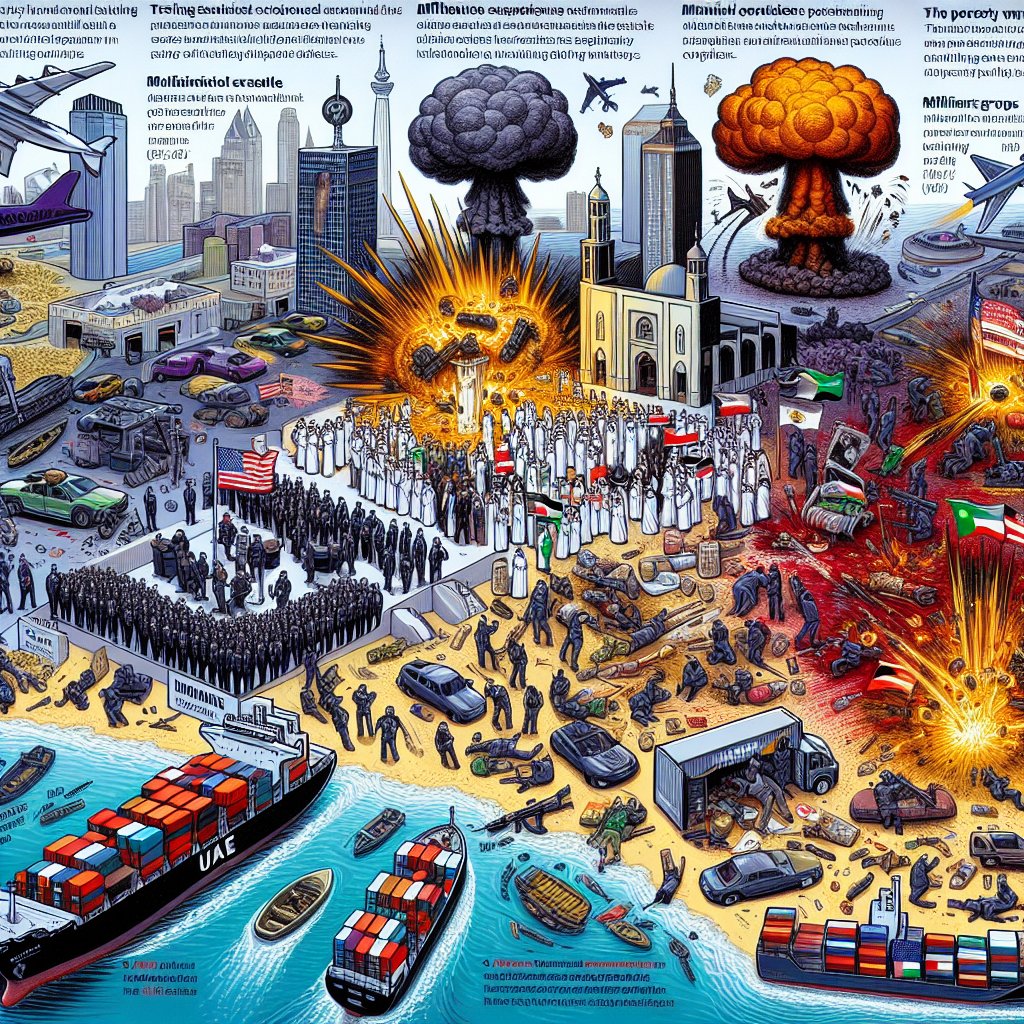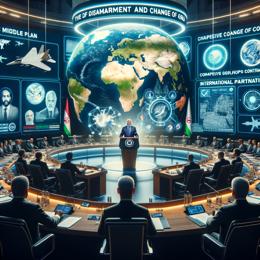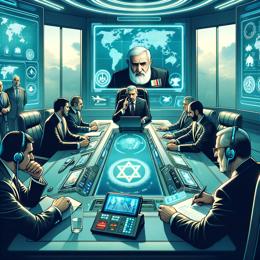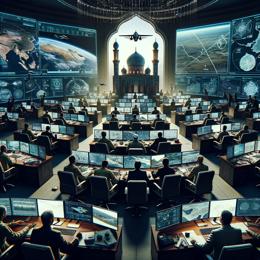Content created by AI
Escalation of Middle East Tensions: Islamic State Claims Responsibility for Iran Blasts, Red Sea Maritime Warnings Issued
In a disturbing spike of violence that risks spiraling into a broader regional conflict, Islamic State (IS) claimed responsibility for the devastating attack near the grave of Iranian military commander Qassem Soleimani. The announcement rattled the volatile political landscape of the Middle East and drew urgent responses from global powers.
On Wednesday, two separate explosions near Soleimani's grave in Iran caused a shocking toll of casualties, with the Iranian Health Minister confirming 95 deaths and 211 injuries. The blasts were executed with bombs concealed in both a suitcase and a vehicle, pointedly targeting participants of a memorial ceremony for Soleimani, and were set off remotely, as reported by the state-run Islamic Republic News Agency.
While Iran implicated its position against Israel's actions in Gaza as a motive, the sophistication of the attack led U.S. officials to speculate IS' involvement early on. These officials' suspicions were proven accurate when IS, through a statement on its Telegram channel, took credit, adding a grim chapter to the already tumultuous situation in the region.
Tensions escalated further when over a dozen countries, spearheaded by the U.S., issued dire warnings against the Houthi militia to cease their attacks on commercial shipping in the strategic Red Sea waterway. This followed a string of aggressive actions by Iran-backed groups across the Middle East, including missile and drone assaults by the Houthis on ships, impacting global trade routes.
The U.S. and allied nations fear the Houthi's unprecedented anti-ship missile tactics and potential disruption of a waterway that typically handles 12% of global commerce. These developments have led countries such as the U.S., the UK, Australia, and others, to contemplate military action against the Houthis to protect the critical trade passage.
With the U.S. Secretary of State Antony Blinken slated to visit the Middle East, the contentious issues of the Red Sea attacks and the ongoing conflict with Hamas are expected to be priority topics. The United Nations Security Council, convened at the behest of the U.S. among others, underscores the urgency felt on a global scale over these developments.
Amidst these security concerns, shipping fares have soared as a result of diminished capacity and the necessity to circumnavigate potential Red Sea hazards. Container rates between key global economies reflect the gravity of the situation, as ships alter courses in anticipation of threats emanating from the Houthi-controlled areas of Yemen.
While the Middle East endures a convoluted web of hostilities and alliances, the United Arab Emirates remains steadfast in its historic decision to establish cordial relations with Israel as outlined in the Abraham Accords. This commitment stands despite intense scrutiny amidst the ruinous Gaza conflict, with UAE officials emphasizing the importance of seeking political avenues to resolve the Israeli-Palestinian standoff.
The latest claim by Islamic State, coupled with maritime concerns in the Red Sea, reveals the intricate and perilous nature of Middle Eastern politics. The global community remains alert and poised for potential actions, aiming to restore stability and ensure the free flow of commerce within this crucial international arena.










